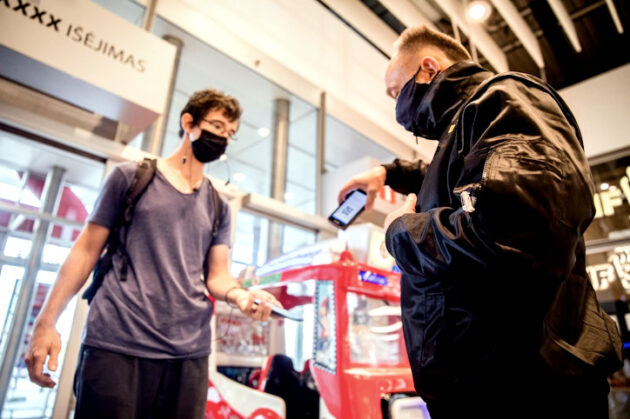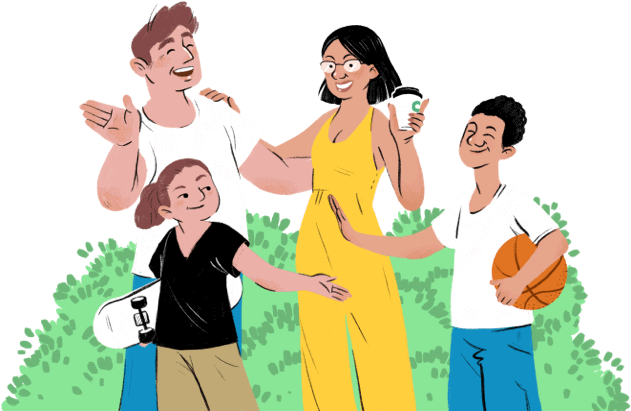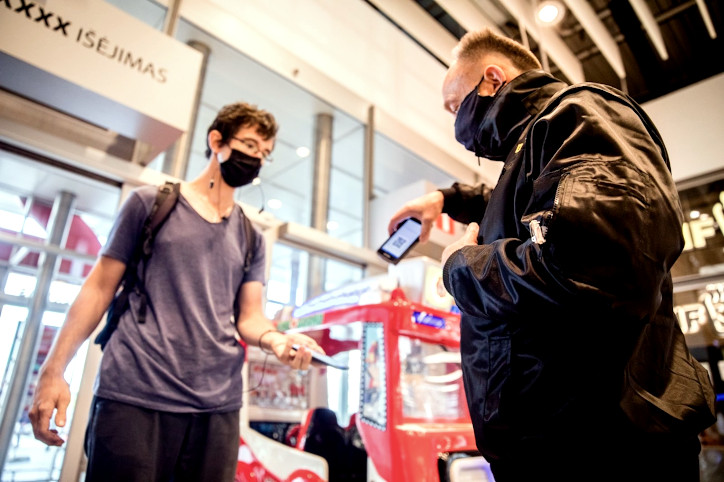I want to share the situation that my family and I are now facing because of Covid Pass restrictions.
We live in the small European country of Lithuania. In the last few months, strict Covid Pass restrictions have been introduced which represent a fundamental transformation in society.

In this article, I’ll describe the details of how the Covid Pass works in my country and how it affects my family. As a start, we’re banned from shopping centres, non-essential stores, and restaurants. And my wife and I were both were suspended from our jobs without pay.
But as I’ll explain, it’s not just Lithuania. Covid Pass restrictions are being imposed throughout Europe. By my count, at least 14 European countries now have different types of domestic restrictions based on the Covid Pass. And every country has travel restrictions within Europe based on the Covid Pass.
There hasn’t been much reporting in English-language media about what has happened. So I thought a detailed first-hand account would be useful.
My family, my country

Lithuania is a small EU country of 2.8 million people, located on the Baltic Sea, bordering Poland, Belarus, Russia, and Latvia.
Currently, 69% of the population over age 12 are Covid vaccinated.
My wife and I have two children. She is pregnant with our third child.
Neither my wife nor I are Covid vaccinated.
The Opportunity Pass
Lithuania introduced a Covid Pass for domestic use at the end of May 2021. It’s called the “Opportunity Pass” (Galimybiu pasas in our language). It’s for all citizens and foreign residents aged 16 and over.
The Opportunity Pass allows you the opportunity to participate in society. Without it, you don’t have opportunity: your rights are restricted.
You can get the Opportunity Pass in 3 ways:
- If you’ve been vaccinated (approved vaccines: Pfizer, Moderna, AstraZeneca, J&J).
- A negative PCR test. Valid for 48 hours after the sample is collected.
- Proof of having had Covid in the last 7 months. You must have had a positive PCR or antigen test result confirmed at the time by your family doctor and entered into your official medical records.
In the middle of August, our country added a fourth way to get the Opportunity Pass: “a sufficient level of antibodies” based on serological immunoassay for COVID-19 IgG antibodies or total antibodies test. Valid for 60 days after a test.
The Opportunity Pass is linked to your medical records in the national health system, all of which is organized under your national ID number.
The government app has an illustration showing the fun you’ll have participating in the opportunities of society if you have the Opportunity Pass:

There is no illustration of people who do not have the Pass.
Restrictions for people without the Opportunity Pass
A law was passed on August 16 authorizing increased restrictions against people who do not have a valid Opportunity Pass. The restrictions were phased in over several weeks after the passage of the law. All measures are in full effect since September 13.
Some of the restrictions include:
- You cannot visit any cafes or restaurants.
- You cannot enter any non-essential stores.
- You cannot enter any shopping center or large store.
- You cannot receive beauty services (hair, nails, salons, etc).
- You cannot use repair services which last longer than 15 minutes.
- You cannot enter public indoor spaces.
- You cannot enter a fitness center, gym, or sauna.
- You cannot attend outdoor events which have more than 500 people.
- You cannot sit and read in libraries. You may only use the library to pick up and return books.
- You cannot travel by train. [The government temporarily rescinded this restriction for now because it’s unworkable and causing chaos.]
- You cannot enter banks or insurance agencies unless the purpose is to receive pensions or social benefits where the service lasts no more than 15 minutes.
- Students cannot enter university without the Pass. [Because many students are not vaccinated, the government announced a grace period: until October, students may take free (i.e., government-paid) Covid tests to give them time to vaccinate. Starting in October, students must have the Opportunity Pass].
- You cannot visit patients in medical facilities or senior care/residential homes. The only exception is for terminally-ill patients and children under 14 years of age if the doctor gives advance permission.
- Regarding medical care:
— You may receive emergency care without the Opportunity Pass.
— For scheduled inpatient medical care, you must have the Covid Pass or Covid certificates.
— For outpatient services, the medical care must be conducted “in a safe environment” and will require testing “depending on the epidemiological situation”.
To be continued…

